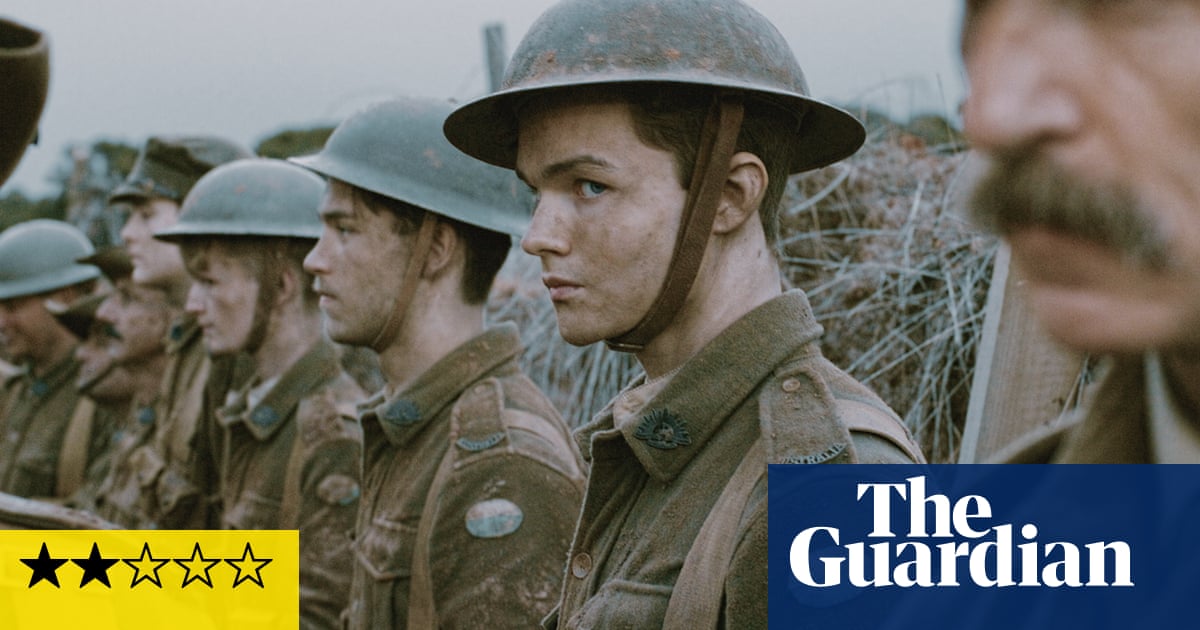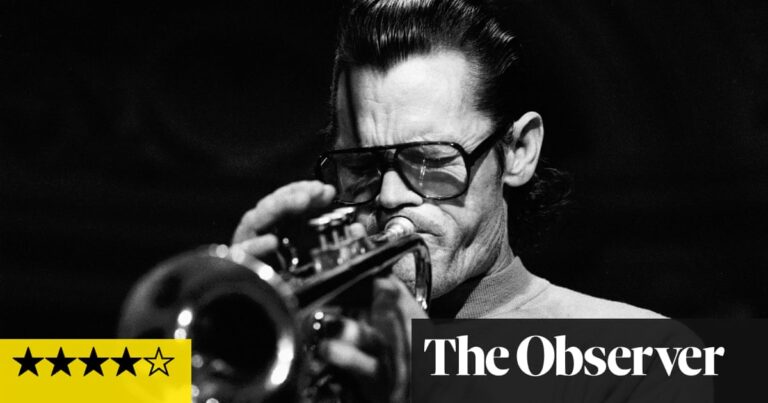
Watching Before Dawn, it is quickly obvious that this first world war drama didn’t have a budget big enough to stage blockbuster scale battlefield recreations – instead, there’s plenty of scenes following characters inside trenches, the camera poised below ground level. Director Jordan Prince-Wright exploits the restricted spatiality of these settings, often keeping shots tight and human-oriented, with scant locational details. The cover of night also helps. It reportedly cost $900,000 in earthworks to dig the trenches, transforming farmland in Esperance, Western Australia, into environments that can plausibly – at a push – resemble terrain in war-torn Europe.
The marketing materials for Before Dawn do a good job impersonating a bells-and-whistles production but the film itself is another matter: there were times, particularly early on, when I couldn’t help but think, “These are just actors performing in a hole in the ground.” You can feel Prince-Wright and his cast and crew bending over backwards to achieve things better resourced productions pull off much more easily, giving the experience a slight tang of desperation, and perhaps diverting attention from areas where it needed work – such as the script, which brings nothing really new to the table and lacks a compelling arc.
The film follows Levi Miller’s Jim Collins, a virtuous young man who leaves the family sheep station to serve in the war, deployed with fellow Anzacs to the western front. Before Dawn begins with battlefield imagery – rats skulking around, soldiers navigating muddy trenches – before jumping back to Jim at home. The film feels quite unsettled in its establishing minutes, before stabilising into an experience that deploys the sorts of scenes and messages we’ve seen many times before, often in far superior productions. Soldiers push through perilous terrain, share moments of bonding, encounter death and horrible hardship, deliver melancholic reflections accompanied by an orchestral score, et cetera.
-
Sign up for the fun stuff with our rundown of must-reads, pop culture and tips for the weekend, every Saturday morning
Miller is a bankable actor (he is particularly impressive in the 2021 swimming drama Streamline) but his performance here, like the film itself, lacks gravitas. He isn’t enough to lift a run-of-the-mill production that struggles to maintain dramatic interest. It is reasonably successful in some aspects, though – for instance, in its portrayal of camaraderie between very young men in tragic circumstances.
The producers have declined to say how much the film cost to make, but it doesn’t look like a lot. Budgets are never an indication of quality – in fact, big ones come with all sorts of consequences, alluded to in Orson Welles’ great quote: “The enemy of art is the absence of limitations.” But money and resources can be particularly important in genres such as science fiction, period dramas and war films, especially if they’re based in environments with particular visual expectations and reference points.
To really pull off a film like Before Dawn, and keep us engrossed during long slabs of minimal action, the dialogue and performances needed to be top-notch. A fresh perspective is also important in a genre that’s been so comprehensively explored. This speaks to the greatness of Jonathan Glazer’s The Zone of Interest: a genuinely unique film that observes war through a different prism.
after newsletter promotion
Before Dawn might have also benefited from contemplating what exactly the Anzacs were fighting for. An interesting response to this question can be found in Charles Chauvel’s 1940 film Forty Thousand Horsemen, when Chips Rafferty’s character, a member of the Australian Light Horse, answers: “I suppose it’s for the right to stand up on a soapbox in the Domain. The right to tell the boss what he can do with his job if we don’t like it. And the right to start off as a roustabout and finish up as prime minister.” Chauvel steps out of the trenches, so to speak, to engage in broader social discussions – something that is so rare in war films, including this one.
-
Before Dawn is in Australian cinemas now
Source: theguardian.com



















